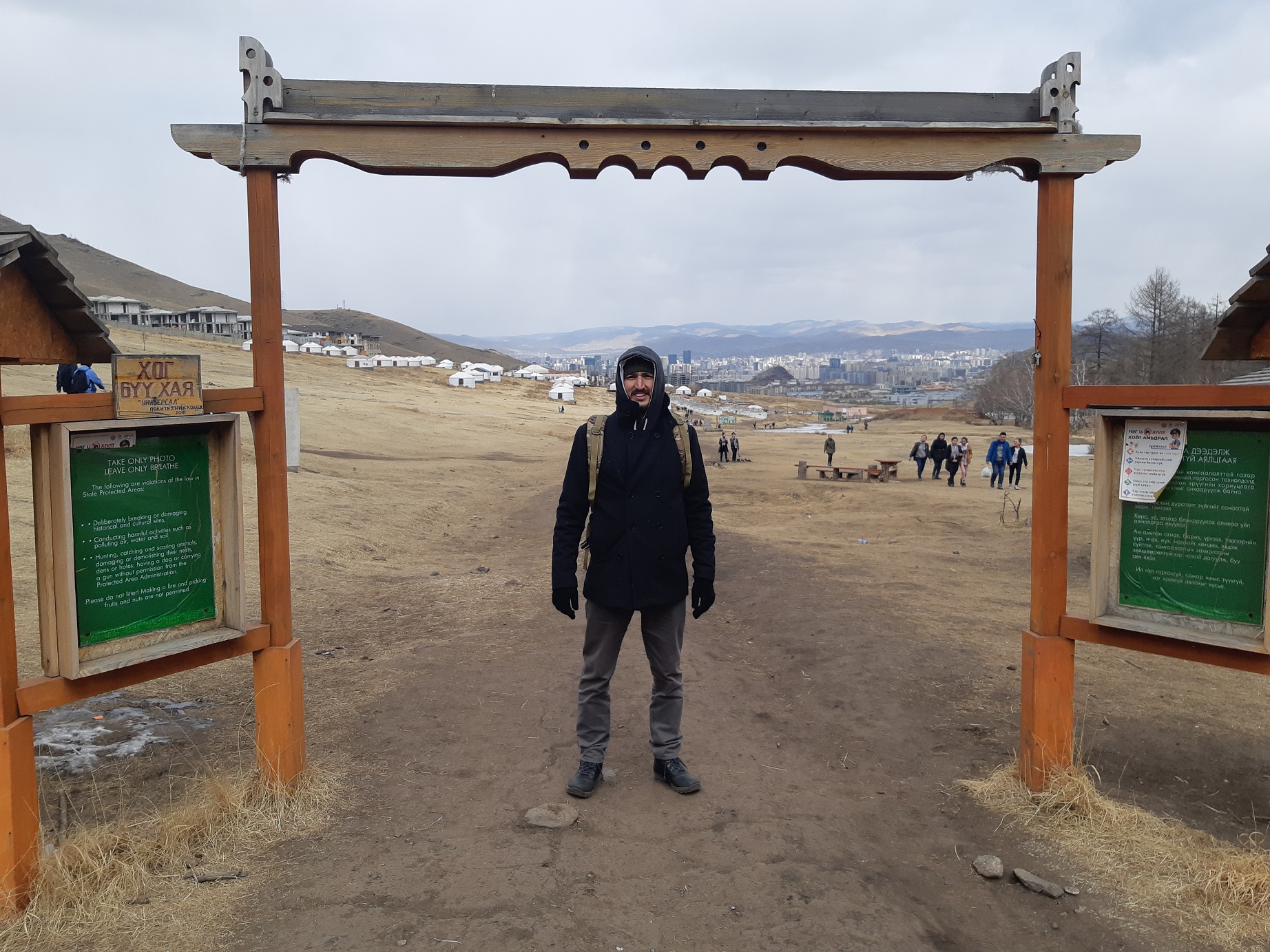Abdarrahman Ceylan in Ulaanbaatar, Mongolia



Abdurrahman Ceylan
Medical Physics Specialist
Volunteering in Mongolia – A Memorable & Rewarding Experience
As medical physicists, one of our motivations is the desire to help other people. In March 2019, I had the opportunity to do this through a volunteer mission to Mongolia, supported and funded by the ACPSEM Asia Pacific Special Interest Group (APSIG).
The purpose of this trip was to provide staff training at the only specialised cancer hospital in Mongolia. The National Cancer Centre of Mongolia (NCCM) is located in Mongolia’s capital city, Ulaanbaatar. This trip, built on previous relationships fostered by previous APSIG volunteers and representatives, was the first APSIG organised training assignment to Mongolia.
I was stationed in Mongolia for a total of 4 weeks, during which time I had the opportunity to train NCCM staff from different disciplines. Besides my volunteer work, I also had the chance to learn aspects of the Mongolian culture, discover parts of the city of Ulaanbaatar, and gained some friends along the way. Most importantly, I believe I made a positive impact improving the radiotherapy standard of services in this sole Mongolian cancer centre.

The NCCM has a long history in cancer care, with treatments dating back to 1961 with radiotherapy in Mongolia going back even further. Currently, the NCCM provides nation-wide services in cancer treatment. This includes surgery, chemotherapy and radiotherapy. However, the Radiotherapy Department equipment is older technology than the other cancer departments. Therefore, there have been efforts taken in the last few years to modernise its technologies to bring the equipment and radiotherapy treatment techniques up to more in line with modern departments in other parts of the world.
The NCCM Radiotherapy Department purchased two new linear accelerators (or linacs) and other support equipment. The linacs must be tested and calibrated to deliver safe levels of X-ray radiation when treating cancer patients using modern techniques.
Due to the linac’s technical complexity, the NCCM staff required assistance and training by medical physicists experienced in testing and using the new equipment. My trip was arranged by APSIG to coincide with the commissioning of these new linacs after they were installed in early 2019.

During my stay in Mongolia, I tried to use every opportunity to pass on the knowledge and experience I have gained as a Medical Physicist in Australia. This extra work included training local staff on the safe use of the equipment and performing important tests including everything from the multi-million dollar linacs to even verifying the rulers and thermometers!
Data measurements were performed by the NCCM physics team together with my training and assistance. This step is a critical component in preparing the linacs for clinical use,. It is an essential skill for a Medical Physicist.
Training in documentation processes and record keeping are also important ancillary procedures of good practice covered during my time in Mongolia. By working closely with local staff every step of the way, we were able to optimise the training and best use our short time together effectively.
Although I enjoyed my time in Mongolia, it was not without its challenges. Being away from my family was probably the most difficult part of the trip for me. But keeping in touch with them every day helped alleviate some of the home sickness I felt.
There are also the language barriers that need to be managed when visiting another country. But thankfully, there were many Mongolians with excellent English language skills, who helped me navigate the communication challenges I faced.
To reciprocate their kind efforts and help in this regard, I tried to learn as much Mongolian as I could in the time I was there. And even though Mongolian winters are infamous (Ulaanbaatar is the coldest capital city in the world), I found the weather to be quite manageable as long as I was appropriately prepared; layers are your friend!
Any difficulty I may have encountered, however, was insignificant when compared with the people I met, the experiences I had, and the food I ate in Mongolia. The traditional cuisine was hearty and filling. Perfect for the cold days! And even though my time over there went quickly, I managed some sightseeing as well. So, I didn’t miss out on seeing the beautiful Central Asian landscapes.
Before I left, the NCCM staff expressed their thankfulness and appreciation of my help, and I expressed my gratitude for their help and hospitality. They are a wonderful group of healthcare professionals. We need to do as much as we can going forward to assist them in helping provide adequate cancer treatment to the people of Mongolia.
Finally, I want to thank everyone who has donated to APSIG, thank APSIG for making this volunteer mission possible and to thank my colleagues for their advice and assistance.
Abdurrahman Ceylan, 20 May 2019

